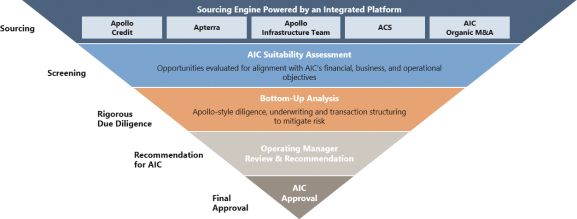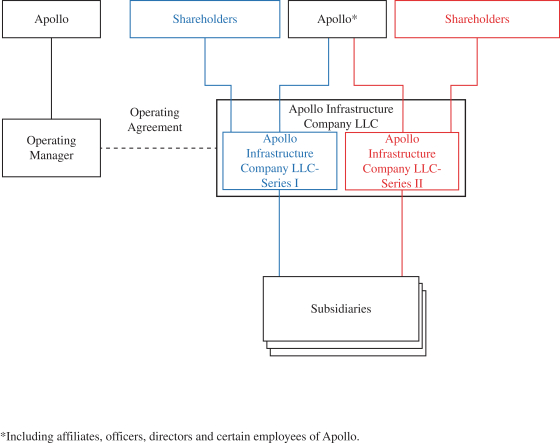Due to different accounting and other standards, the Company may be presented with information that is less reliable and less sophisticated than GAAP principles would allow for, which would adversely affect our business.
Accounting, financial, auditing and other reporting standards, practices and disclosure requirements that are not equivalent to generally accepted accounting principles in the United States (“GAAP”), may differ in fundamental ways. Accordingly, information available to the Company that is not consistent with GAAP including both general economic and commercial information and information concerning specific infrastructure assets, may be less reliable and less detailed than information available in more financially sophisticated countries, which could adversely impact, among other things, the Company’s due diligence and reporting activities. Assets and profits appearing on the financial statements of an Infrastructure Asset may not reflect its financial position or results of operations in the way they would be reflected had such financial statements been prepared in accordance with GAAP. Even for financial statements prepared in accordance with GAAP, the accounting entries and adjustments may not reflect economic reality and actual value.
Furthermore, for an Infrastructure Asset that keeps accounting records in a currency other than U.S. dollars, inflation accounting rules in certain markets require, for both tax and accounting purposes, that certain assets and liabilities be restated on Infrastructure Asset’s balance sheet in order to express items in terms of a currency of constant purchasing power. As a result, financial data of prospective investments may be materially affected by restatements for inflation and may not accurately reflect actual value. Accordingly, the Company’s ability to conduct due diligence in connection with an investment and to monitor the investment may be adversely affected by these factors.
Changes in economic policy, the regulation of the asset management industry, insurance law, tax law, immigration policy, environmental protection and/or climate change policies or regulations and/or government entitlement programs could negatively affect the Company.
Any significant changes in, among other things, economic policy (including with respect to interest rates and foreign trade), the regulation of the asset management industry, insurance law, tax law, immigration policy, environmental protection and/or climate change policies or regulations and/or government entitlement programs could have a material adverse impact on the Company and its assets. More generally, legislative acts, rulemaking, adjudicatory or other activities by U.S. or non-U.S. governmental, quasi-governmental or self-regulatory bodies, agencies and regulatory organizations could make it more difficult (or less attractive) for the Company to achieve its objectives or for some or all of the Company’s Infrastructure Assets to engage in their respective businesses.
Populist, protectionist and anti-globalization movements, particularly in Western Europe and the United States, could result in material changes in economic, trade and immigration policies, all of which could lead to significant disruption of global markets and could have materially adverse consequences on the investments of the Company, including in particular on infrastructure assets whose operations are directly or indirectly dependent on international trade.
We expect our acquisitions to include Infrastructure Assets in regulated industries that could negatively affect the Company. Acquisitions of Infrastructure Assets in regulated industries exposes us to a higher level of regulatory control than typically imposed on other businesses.
In many instances, the making or acquisition of infrastructure investments involves an ongoing commitment to a municipal, state or federal government, quasi-government, industry, self-regulatory or other relevant regulatory authority, body or agency (“Regulatory Agencies”). These more highly regulated industries include among others, real estate, financial services (including banking, investing and mortgage servicing), transportation (e.g., aviation), energy and power generation, civil engineering and urban development, construction and businesses that serve primarily customers that are governmental entities, including the defense industry. Certain
99

